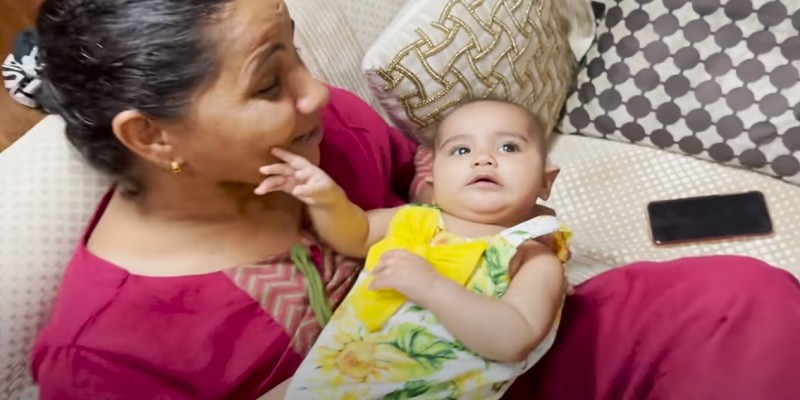Last Updated on January 15, 2025
Certain felonies, such as domestic, sexual or child abuse, will disqualify you from adopting a child. Other convictions may be subject to the agency’s discretion.
If you are considering adoption in California, it is important to speak with your adoption professional to determine if you meet the necessary requirements. Additionally, factors such as a lack of a separate bedroom for children or a history of alcoholism or drug dependence may also hinder your adoption eligibility.
It is crucial to have a clear understanding of the disqualifying factors to ensure a smooth adoption process. By being knowledgeable about the requirements, you can take the necessary steps to meet them and increase your chances of successfully adopting a child.

Credit: consideringadoption.com
Criminal Convictions And Background Checks
When it comes to adopting a child, there are several important factors that can disqualify potential adoptive parents. One of these factors is criminal convictions and background checks. Adoption agencies prioritize the safety and well-being of children, and as a result, they conduct thorough evaluations of the criminal history of prospective parents.
Certain Felonies, Such As Domestic, Sexual, Or Child Abuse, Will Disqualify You From Adoption.
It is crucial to understand that certain felony convictions automatically disqualify individuals from adopting a child. Felonies related to domestic violence, sexual abuse, or child abuse are considered an absolute bar to adoption. These serious offenses demonstrate a potential risk to the welfare and safety of the adopted child. Adoption agencies prioritize placing children in safe and nurturing environments, and any felony convictions related to violence or abuse are clear disqualifications.
Misdemeanor And Felony Convictions May Be Subject To The Agency’s Discretion.
While certain felonies automatically disqualify individuals from adoption, misdemeanor and felony convictions that are not directly related to domestic, sexual, or child abuse may be considered on a case-by-case basis. Adoption agencies have different policies regarding the severity and recency of criminal convictions. Some agencies may exercise discretion when evaluating potential parents with non-violent misdemeanor or felony convictions, considering factors such as the nature of the offense, time since the conviction, and evidence of rehabilitation or personal growth.
The Importance Of Speaking To An Adoption Professional About Meeting Adoption Requirements In California.
If you are considering adoption in California, it is crucial to directly engage with an adoption professional who can provide specific guidance and information regarding the adoption requirements in the state. Adoption laws and regulations vary from state to state, and a professional can help you understand the eligibility criteria and navigate the adoption process. By consulting with an adoption professional, you can gain clarity on whether your criminal history will disqualify you or if your circumstances may be subject to agency discretion.
How Criminal Background Checks Can Impact Your Eligibility To Adopt.
As part of the adoption process, adoption agencies conduct detailed criminal background checks on prospective adoptive parents. These background checks are essential for ensuring the safety and well-being of the child being placed for adoption. Any criminal convictions, especially those related to domestic violence, sexual abuse, or child abuse, can significantly impact your eligibility to adopt. It is crucial to be transparent about your criminal history during the adoption process as withholding information can jeopardize your chances of being approved. Adoption agencies prioritize honesty and transparency to ensure the best interest of the child.
Home And Living Arrangements
Certain felonies, such as domestic, sexual or child abuse, will disqualify you from adopting a child. Other convictions may be subject to the agency’s discretion. The layout of your home, having a separate bedroom for children, and having a history of alcoholism or drug dependence can also disqualify you.
Speak to your adoption professional for more information on the requirements in your state.
The Layout Of Your Home And The Requirement For A Separate Bedroom For The Child
When it comes to adopting a child, the layout of your home plays a crucial role in the approval process. Adoption agencies have specific requirements and one of them is having a separate bedroom for the child that can be accessed through its own door without going through another room. This ensures that the child has their own personal space and privacy.
Impact Of Not Having A Private Entrance To The Child’s Bedroom
Not having a private entrance to the child’s bedroom can be a disqualifying factor in the adoption process. It is important for the child to have their own space that allows them to develop a sense of security and independence. A private entrance also ensures that the child can have a quiet and peaceful environment, promoting better sleep and overall well-being.
Factors To Consider In Creating A Safe And Suitable Living Environment For A Child
Creating a safe and suitable living environment for a child is of utmost importance in the adoption process. The following factors should be taken into consideration:
- Childproofing: Ensuring that all potential hazards are removed or properly secured to prevent accidents.
- Health and sanitation: Maintaining a clean and healthy living environment, including regular cleaning and proper hygiene practices.
- Adequate space: Providing enough space for the child to move around and play comfortably.
- Stability: Demonstrating stability and consistency in your living arrangements, showing that you are capable of providing a long-term home for the child.
- Accessibility: Ensuring that the home is accessible for individuals with disabilities, if applicable.
Ensuring That Your Home Meets The Requirements Set By The Adoption Agency
It is essential to ensure that your home meets the specific requirements set by the adoption agency. These requirements may vary depending on the agency and the specific needs of the child. Some common requirements include:
| Requirements | Description |
|---|---|
| The separate bedroom | Having a separate bedroom for the child, accessible through its own door. |
| Safety features | Installing safety features such as window guards, stair gates, and outlet covers. |
| Sufficient living space | Providing enough square footage for the child’s needs. |
| Neighborhood safety | Selecting a safe and child-friendly neighborhood. |
| Home inspection | Undergoing a home inspection to ensure compliance with safety standards. |
By adhering to these requirements, you increase your chances of being approved for adoption and provide a safe and suitable living environment for the child.
Medical And Health Conditions
When it comes to adopting a child, various factors are considered to ensure that the child will be placed in a safe and healthy environment. Medical and health conditions play a crucial role in determining eligibility for adoption. Prospective adoptive parents must meet certain requirements and guidelines to ensure the well-being of the child.
History Of Alcoholism Or Drug Dependence And Its Effect On Adoption Eligibility
A history of alcoholism or drug dependence can significantly affect an individual’s eligibility to adopt a child. Agencies prioritize the safety and stability of the child, and substance abuse can pose potential risks. It is important to demonstrate rehabilitation and the ability to provide a stable environment for the child.
The Requirement For At Least One Year Of Sobriety
In order to qualify for adoption, individuals with a history of alcoholism or drug dependence must show a minimum of one year of sobriety. This requirement serves as an indication of their commitment to recovery and provides reassurance that they have taken steps to address their substance abuse issues.
The Possibility Of Being Disqualified If You Or Your Partner Have A Life-threatening Illness
Adoption agencies prioritize the health and well-being of both the child and the prospective adoptive parents. If you or your partner have a life-threatening illness, there is a possibility that you may be disqualified from adopting a child. This is to ensure that the child will have a stable and secure future without the added burden of potential health complications.
How Health Conditions Can Be Assessed During The Home Study Process?
During the adoption process, a home study is conducted to assess the suitability of prospective adoptive parents. This includes evaluating their physical and mental health conditions. Social workers and adoption professionals will conduct interviews, review medical records, and potentially require additional medical evaluations to assess the overall health and ability of the individuals to care for a child.
It is important to be aware of the impact that medical and health conditions can have on the eligibility to adopt a child. Both historical substance abuse issues and ongoing life-threatening illnesses can potentially disqualify individuals from adopting. However, meeting the requirement of at least one year of sobriety and undergoing a thorough assessment during the home study process can help determine suitability for adoption. It is essential to work closely with adoption professionals to navigate this aspect of the adoption journey.
Frequently Asked Questions On What Will Disqualify You From Adopting A Child?
What Stops People From Being Able To Adopt?
Certain felonies, such as domestic, sexual, or child abuse, may disqualify you from adopting. The agency’s discretion applies to other misdemeanor and felony convictions. Your home layout and history of alcoholism or drug dependence could also be factors. Additionally, a child abuse registry record, life-threatening illness, or disease may impact your eligibility.
Speak to an adoption professional for state-specific requirements.
What Are Reasons You Can’t Adopt?
Certain felonies, such as domestic, sexual or child abuse, can disqualify you from adopting a child. Having a history of alcoholism or drug dependence may also prevent agencies from working with you. Additionally, a life-threatening illness or disease can affect your home study approval.
Consult your adoption professional for specific requirements in your state.
Why Do People Get Rejected From Adoption?
Certain felonies like domestic, sexual or child abuse can disqualify you from adoption. The layout of your home, history of alcoholism or drug dependence, child abuse registry record, and life-threatening illness are other potential disqualifications. However, each agency may have its own discretion.
Speak to an adoption professional for specific requirements in your state.
What Causes You To Fail A Home Study?
Felonies like domestic, sexual or child abuse can disqualify you from adopting. Your home layout without a separate child bedroom may also be a factor. Having a history of alcoholism or drug dependence may prevent agencies from working with you.
Life-threatening illnesses or diseases may impact your ability to adopt.
Can Certain Felonies Disqualify You From Adopting A Child?
Yes, certain felonies such as domestic, sexual, or child abuse can disqualify you from adopting a child in most cases.
Conclusion
Several factors can disqualify individuals from adopting a child. Felonies related to domestic, sexual or child abuse are absolute barriers to adoption. Other convictions may be subject to the agency’s discretion. Moreover, the layout of your home and the presence of a separate child’s bedroom may also impact your eligibility.
Additionally, a history of alcoholism or drug dependence, as well as life-threatening illnesses, can prevent adoption. It is crucial to speak with adoption professionals to determine if you meet the requirements for adoption in your state.

